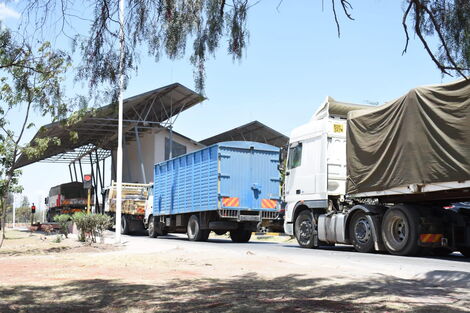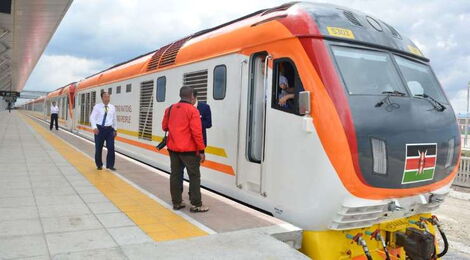Every pedestrian and motorist is familiar with the hissing sound that produced by trucks, buses and sometimes lorries on our roads especially when braking.
Unlike cars, which rely solely on hydraulic brakes, trucks and other large vehicles, vehicles such as buses, trains and semi-trailers all use an air-brake system.
The reason for this is due to the abundance of air around us, which won’t run out. Hydraulic acid, on the other hand, can run out if the vehicle has a leak.
Also, since trucks are heavy and typically weighed down even further with cargo, it would pose a huge safety risk to everyone and everything in the vicinity if the braking system on one of these vehicles were to fail.

When heavy vehicles need to slow down and stop on the road, the driver’s force should be at a minimum.
If a truck was to be halted with a compressed air brake system with normal brakes, it would be necessary to apply 30-40 times more pressure to the brake.
It is therefore impossible to transmit the force applied to the brake pedal to the tires of heavy vehicles.
Air brakes are much less likely to falter than hydraulic brakes. But this is also what makes trucks so noisy.
The hissing noise that we are all so accustomed to hearing by now is caused by the air escaping when the driver puts their foot on the brakes.
That hissing sound is produced because the air accumulated must be evacuated after a certain pressure level in order to maintain the pressure value.
According to car experts, this system, which is the cause of the hissing sounds consists of a compressed air supply unit, continuous brake system, foot brake system, hand brake unit, a compressor brake pedal valve, relief valve, distributor valve, hand brake lever, trailer control valve, relay valve, bellows and emergency bellows, and load adjustment.
It is important to note that when pressure is applied to the brakes in a truck, the air is slowly released.
This would cause the springs in the system to expand and trigger the brakes, which is what brings the vehicle to a standstill.
As the truck begins to move again, the air pressure will start to build, which tightens the springs back up.
However, if that pressure is suddenly lost, a large spring will expand and automatically apply the emergency brakes.
Additionally, with advancements in technology, the air produced in the vehicle could also be used in suspension systems.
Thus, “air suspension systems” have replaced mechanical spring suspension systems.
The basic logic of this system is to provide suspension by placing air-filled balloons between the chassis and the load.
However, if a truck makes hissing noises when moving or accelerating, there might be some cause for concern.
Hissing sounds that occur when driving could point to a fault in; the motor’s cooling system, a damaged AC valve, or a vacuum leak.

Source: kENYANS.CO.KE











